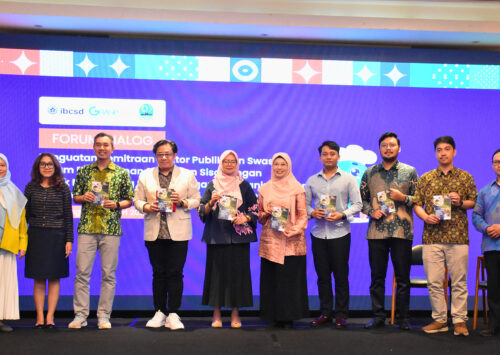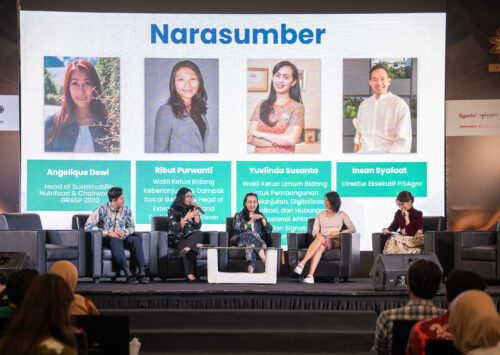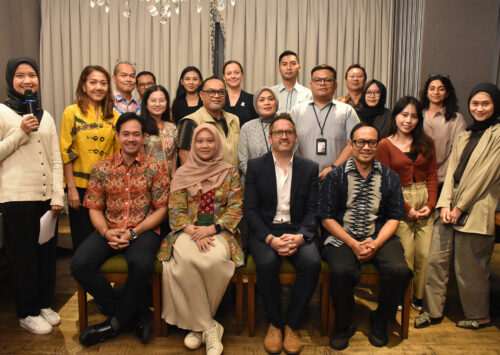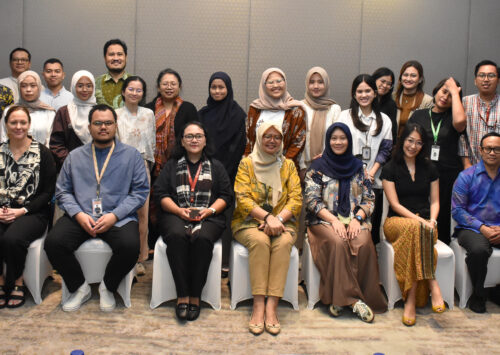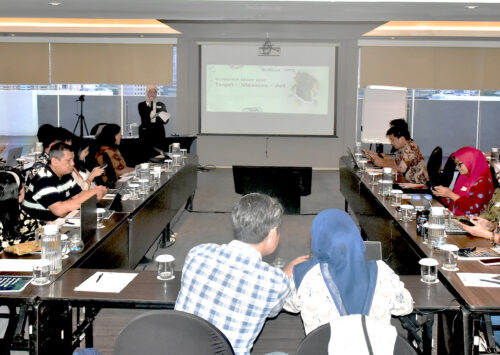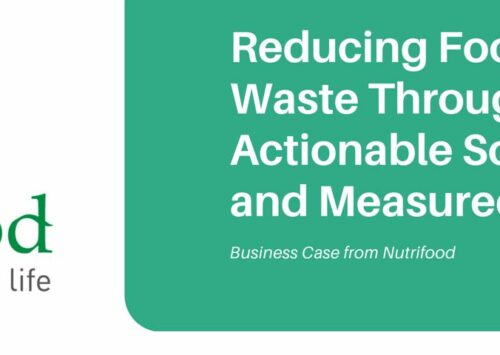According to FAO (Food and Agriculture Organization) data, 1/3 of the food produced in the world is lost in the process or becomes waste. This fact is not only detrimental economically, but also environmentally and socially. The United Nations has specifically targeted a 50% reduction in waste by 2030 in the Sustainable Development Goals (SDG) 12.3. In a study conducted by BAPPENAS, Indonesian people produce 184 kg/year of food waste per capita. According to data from the Ministry of Environment and Forestry, food waste in Indonesia accounts for 44 percent or almost half of the total waste in Indonesia. This means that by reducing food waste, it will certainly have a significant impact on overall waste reduction.
IBCSD (Indonesia Business Council for Sustainable Development) on 8 September 2021 launched the GRASP 2030 (Gotong Royong Atasi Susut & Limbah Pangan di 2030), an initiative that encourages businesses as the main actors to collaborate with other stakeholders throughout the food system chain in developing solutions to reduce food loss and waste. The GRASP 2030 is a Voluntary Agreement initiative, where all parties join voluntarily to act together because of the urgency of food loss and waste issue. It manifests the private sector’s commitment to realize a more sustainable food chain in Indonesia.
The GRASP 2030, which generously funded by P4G (Partnering for Green Growth and the Global Goals 2030), is built based on evident success of what has been done by WRAP (Waste & Resources Action Programme), IBCSD’s partner in developing GRASP 2030
The launch event was inaugurated by Dr. Arifin Rudiyanto as Deputy for Maritime Affairs and Natural Resources of the Ministry of National Development Planning/BAPPENAS and also attended by Ian De Cruz, Director of P4G Global and Lars Bo Larsen, Ambassador of Denmark to Indonesia.
From Ian de Cruz’s explanation, it was found that there is a US$2.5 trillion financing gap needed by developing countries to implement the SDGs. The gap will be filled if the private sector and investors can work together to find a solution. “What we are doing with GRASP 2030 is a Target, Measure, Act, Invest approach. This is in line with Indonesia’s commitment and national strategy to achieve the goals of the Low Carbon Development Initiative.” he added.
Danish Ambassador, Lars Bo Larsen in his speech explained, “When we talk about the food value chain, from production to consumption, I think it is important for Indonesia to identify different strategies at all levels. The challenge for every country is that we have different targets and actors at different levels.”
In addition, in the virtual launch event held on Wednesday 8 September 2021, entitled “Reinforce Food Loss and Waste Partnership Actions through GRASP 2030”, several representatives of companies that have joined GRASP 2030 were present, including Afrizal Gindow, Deputy Managing Director of East West Seed Indonesia; Ika Noviera, Head of Corporate Affairs of PT Multi Bintang Indonesia; Angelique Dewi, Head of Corporate Communication at Nutrifood; Anissa Ratna Putri, Consulting Manager of Waste4Change; and M. Agung Saputra, Managing Director of Surplus Indonesia.
Rows of other panelists from government agencies who also support this program, among others, Dr. Andriko Noto Susanto, Head of the Center for Food Availability and Reserves of the Food Security Agency; Novrizal Tahar, Director of Waste Management at the Ministry of Environment and Forestry; Andriati Cahyaningsih, Policy Analyst for the Green Industry Center of the Ministry of Industry; Putu Juli Ardika, Expert Advisor to the Minister of Industry, Strengthening and Disseminating Industry at the Ministry of Industry, and Anang Noegroho, Director of Food and Agriculture at BAPPENAS.
Putu Juli Ardika, Director General for Agro Industry, Ministry of Industry, said that in terms of the processing and packaging industry, since 2000, food loss was recorded at around 4.17%, in 2011 it fell to 3.75%, and in 2019 it fell again to 3.26%. “We appreciate industry players participating together on how to reduce food loss and food waste. We think this effort will be quite successful,” he concluded.
In closing the event, Anang Noegroho emphasized that his party appreciated two things. The first is the tagline ‘Gotong Royong’ which is a form of social capital to build this nation in a better direction, building initiatives that are the original face of our nation. Second, the government really appreciates multi-stakeholder cooperation and does not forget about the inclusiveness and synergy of all parties.
As of the launch date, nine founding signatories of GRASP 2030 has joined, including East West Seed Indonesia, Multi Bintang Indonesia, Nutrifood, Kalbe Nutritionals, Sintesa Group, Waste4Change, Surplus Indonesia, WRI Indonesia, and PT Lion Super Indo. Through GRASP 2030, businesses can increase their capacity to manage food loss and waste, improve their reputation in terms of sustainability, gain more connections, and improve their business operation and potential benefit.
